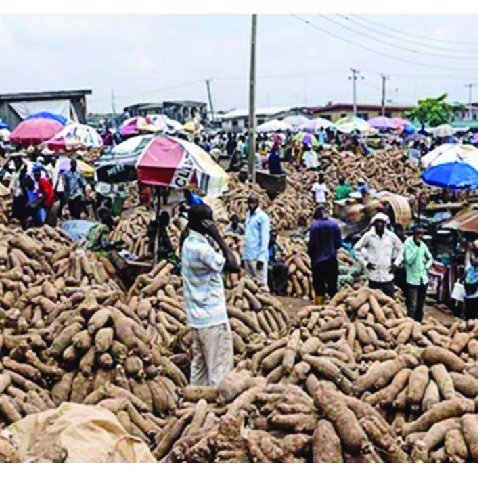As the rainy season progresses, displaced farmers from the Shiroro Local Government Area of Niger State are reportedly negotiating with terrorists in order to return home and plant yam and other crops.
Despite the fact that the terrorists have consented to the appeal, particularly in Chukuba and neighbouring villages, the farmers are still terrified due to their experience in previous years when the terrorists allowed them to plant but not harvest due to attacks.
A farmer from Chukuba stated, “Farmers in the Chukuba axis have begun returning home after terrorists granted permission to plant crops.” Our dread stems from our past experience. We were permitted to plant our crops during the previous wet season, but we were not permitted to harvest during the dry season. On our farms, we lost yam and other crops. We are simply taking a similar risk to see if it works.”
Farmers in Kuchi, Injita, Chibani, Zazzaga, and other communities in the Munya LGA, however, reported that they had not yet been granted full access to their farms for planting this season, as their villages continue to experience daily attacks.
Read Also: 11 Soldiers, 15 Gunmen Dead In Burkina Faso Attacks – Army
Mohammad Awwal, an IDP from Kuchi, explained that every time he and his family returned home to plant yam and other crops, they were attacked and kidnapped, adding, “We have not planted yam, and the rainy season is advancing. Rainfall is the optimal time to plant yams. We ought to have finished planting by now.” Now, terrorists inhabit our communities. “According to our recently-visited brothers, they have left our yam barns open and stocked them with goats that are consuming yam seedlings.”
Another farmer, Shehu Abubakar, remarked, “Only a handful of men take the risk of going to plant one crop or another. And they do so under duress. We no longer bring our children and women to the farm due to the possibility of an attack. Previously, women and children accompanied their husbands and fathers to the farm to assist with planting while he constructed ridges. How many hectares can an individual cultivate by himself? Consequently, there is no active farming. Approximately ninety percent of Munya’s villages are vacant. No longer inhabited, Therefore, serious farming cannot be discussed in Munya.”
A farmer in Gwada, Shiroro LGA, reported that the majority of farmland in the security-affected areas of Shiroro and Munya LGAs could not be cultivated because no one was willing to risk their life for farming.
Due to the ongoing terrorist assault on Munya and Shiroro, where farmers have been tortured, farmers have predicted a yam shortage and general food insecurity in the coming years, unless the government takes severe action against the terrorists to allow them to return to their farms in full.
Abubakar Hussaini, secretary of the Yam Dealers Association (YDA) at the Paiko Central Yam Market, stated: “Some farmers are currently planting yam. This year, even those who were unable to plant last year have begun to do so. Despite the fact that the majority of them travel to the farm in fear to plant crops. Farmers currently employ two or three guards whenever they visit their farms. Their duty is to be on the lookout for terrorists so that, if they are spotted, they can alert their teammates to flee.
This year, farmers have greater access to their farms than in years past, as the security situation has improved.
In addition, he stated that the security issues had caused the price of yam seedlings to increase as a result of the fact that many farmers were unable to harvest their yam the previous year, while others did not plant at all.
Read Also: Lagos Hausa leaders forbid protests against the Okada ban
“Farmers from Munya and Shiroro are now purchasing seedlings from us,” Hussaini continued. Due to high demand from farmers who were unable to plant or harvest their yams last season, seedlings that were sold for N10,000 last year now cost N40,000.
This high cost would prevent many farmers from cultivating more than one hectare. To cultivate many hectares requires huge capital. One hectare requires approximately 3,000 seedlings, which cost approximately N20,000. You are informed of the total price. Over the past two years, some farmers cultivated more than 10 hectares of land but were unable to harvest it.
As a result, he urged the government to take drastic measures to address the security issues so that farmers in the affected communities can return home to face their means of subsistence, noting that life had become difficult because the majority of victims had no other means of survival.


